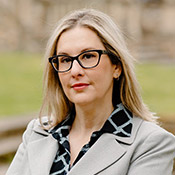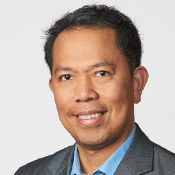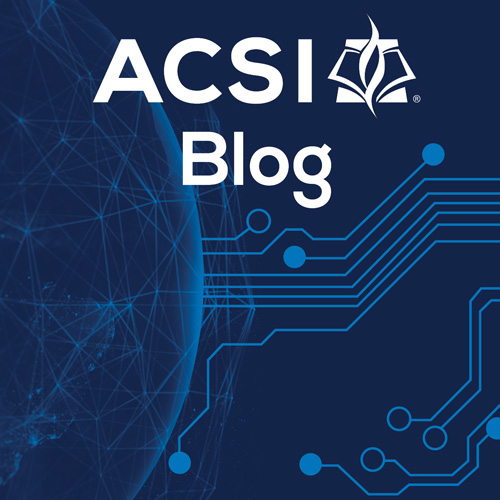ACSI Research Fellow Program
The Research Fellowship program at ACSI offers a unique opportunity for talented researchers to contribute to advancing the field of Christian education while addressing critical global challenges. By fostering collaboration, knowledge exchange, and innovative research, the program aims to make a significant impact on the world stage.
Program Aims:
- Create a vibrant and inclusive international research community.
- Foster collaboration, knowledge exchange, and innovative solutions to address both US and global challenges through research projects in Christian education.
Program Oversight:
- The fellows will collaboratively work with ACSI’s research department and Thought Leadership and the Research Director will oversee the program.
ACSI Fellows Collaborate on Research to Advance Faith-Based Education
ACSI Fellows collaborate with the Thought Leadership team (Research Department) to develop research and Working Papers on important topics in education, spirituality, and culture, focusing on their impact within the realm of Christian education. Their work addresses current trends and challenges, offering valuable insights for advancing faith-based learning.

RiB is a biannual publication by ACSI, aimed at sharing the latest research findings and insights on the Christian school sector. It is available exclusively to ACSI member school and is managed by ACSI Director of Research.

Lynn Swaner Ed.D.
President of Cardus USA – ACSI Senior Research Fellow

Matthew Lee, Ph.D.
Clinical Assistant Professor of Economics at Kennesaw State University - ACSI Senior Research Fellow

Francis Ben, Ph.D.
Associate Professor & Head of Postgraduate Coursework and Research at Tabor College Adelaide Australia – ACSI Global Research Fellow

Alison Heape Johnson
PhD candidate at the University of Arkansas – ACSI Junior Research Fellow
Eligibility:
- Understanding of Christian education.
- Strong academic credentials (e.g., relevant degrees, publications, minimum a Ph.D. candidate in education programs for Junior Fellow and a Ph.D. or Ed.D. for Senior Fellow).
- Demonstrated research excellence.
- Experience in international research collaboration.
- Excellent English communication skills.
- Minimum five years experience of doing research.
Nomination and selection process:
- The selection of the fellows is done through ACSI’s internal nomination.
School’s Over, But We Didn’t Finish Everything—And That’s a Good Thing
There are very few educators with a completed to-do list—there is always more to plan and implement, and every day creates new challenges to add to issues from yesterday that are still unresolved. As we look back at the school year (that either just finished or will finish soon), there are certain to be items we had to leave unchecked.
Why is this the case? Partly, this reflects the reality of working in today’s schools, with so many different constituent groups pulling us in different directions, and projects and tasks that pile up as the tyranny of the urgent rules the day. But if we’re honest, sometimes we are to blame—as leaders, we often engage in an extremely ambitious annual planning cycle. A start-of-year welcome speech that saw a leader outline “the five major things we are going to stop doing this year” would seem bizarre in most schools.
And yet, as we stand on the precipice of the summer months, we can take time to reflect on this truth: stopping things can be one of the most powerful forces in releasing flourishing in our schools. This pruning (which may need to start with ourselves as leaders) is one of the least glamorous but most effective skills of the gardener. It is easier to say than to do, but reflecting on the things we need to ease back on will help to orient us more clearly toward our core purpose—and attain more of the zoē life of abundance that God intends (John 10:10b). We are not taught or trained to slow down, but we need to.
If we consider the life of Jesus for a moment, He clearly did a lot of things, traveled to a lot of places, and met a lot of people. And during all this activity, we see him repeatedly retreating from the crowds and his disciples to be by himself, often to pray. Jesus surely could have used that time alone to “do more”—but he did not. Jesus is an example of purposeful pacing and patiently achieving a purpose.
Although it is personal, knowing when and what to stop is also a corporate activity. It is fundamentally a socially negotiated decision that gives permission to pause. It can be empowering, liberating, respectful, and even lifesaving. While the pace is never likely to let up in education, what we often need more than “doing more” is time to rest, recharge, refine, and refuel. Life in all its fullness does not literally mean a schedule with no space, or an organization with no headroom—rather, it speaks of leaders’ wisdom, perspective, planning, steadfastness, and dependability. Flourishing schools do not wait until the ground is dry and cracked before watering the plants—they irrigate well and often, keeping in mind that sometimes the most efficient irrigation systems are unseen, carefully planned beneath the surface. Therefore, we need to be careful gardeners. As counterintuitive as it may sound, the wisdom of discerning together what to stop leads to our greater flourishing.
The capacity in our system is not limitless, nor is it limitless in the people that work in it (however strong their sense of vocation may be). As Kelly Kapic writes in You’re Only Human: How Your Limits Reflect God’s Design and Why That’s Good News, “We struggle with our human limits and how to celebrate the goodness of being a creature of the God who loves what he made. God delights in our finitude: he is not embarrassed or shocked by our creatureliness. Since he is not apologetic about it, we should stop apologizing for it ourselves” (16). God is the only one who is all-powerful and fully sufficient in himself. As such, he designed creation to be dependent on him, which it still is to this day (Matthew 6:26-27). In Genesis 1, he declared these created limits to be good. So should we.
So as we approach the summer months, let’s look at our to-do list for next year, and instead of seeking to add, let’s look to take things off instead—not because we can get them done in advance by working extra over the summer, but because crossing them off from the list entirely gives us (and our staff) space for next year. We can use that margin to do other things well, to do more important things that otherwise wouldn’t be accomplished, or to create margin so that we can do what we need to with a measure of well-being. After all, we are only human, and that’s a good thing.
Editor’s Note: This blog post is adapted from Flourishing Together: A Christian Vision for Students, Educators, and Schools, by Lynn E. Swaner and Andy Wolfe.
Previously published on June 24, 2024.




Leave a comment